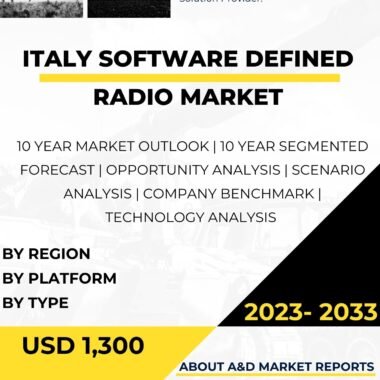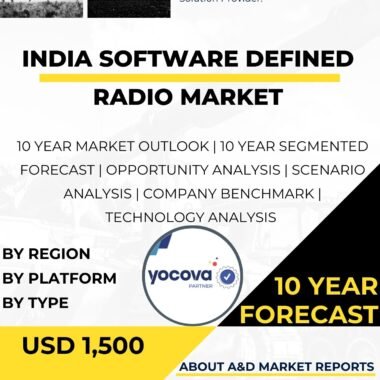Description
The Spain Software Defined Radio (SDR) Market is a vital and rapidly evolving sector that plays a pivotal role in the country’s defense, telecommunications, and public safety domains. Software Defined Radio refers to a wireless communication system that uses software-based processing to enable flexible and adaptable radio functionality. The Spain SDR Market is driven by factors such as the need for advanced and interoperable communication systems, modernization of defense communication infrastructure, and the increasing demand for secure and reliable communication solutions.
The growth of the Spain SDR Market can be attributed to several key factors. First and foremost, the evolving nature of communication requirements in the defense sector necessitates the adoption of flexible and agile radio systems. Software Defined Radio technology provides the Spanish Armed Forces with enhanced interoperability, spectrum efficiency, and secure communication capabilities.
Moreover, advancements in digital signal processing and software-based radio technology have significantly improved the performance and capabilities of SDR systems. Modern SDR platforms offer increased bandwidth, improved spectrum management, and the ability to adapt to different waveforms and communication protocols, making them highly adaptable to changing operational scenarios.
The Spain SDR Market is also driven by the need for enhanced civilian communication systems. In the telecommunications sector, SDR technology offers the potential for more efficient and cost-effective wireless communication solutions, promoting the development of next-generation networks and services.
Furthermore, the Spain SDR Market benefits from the increasing adoption of SDR in public safety and emergency communication systems. SDR technology enables first responders and emergency services to communicate seamlessly and effectively during crisis situations, ensuring better coordination and response.
The versatility of SDR technology is another significant driver of market growth. SDR systems can be easily reprogrammed and upgraded through software updates, enabling users to adapt to new communication standards and requirements without the need for hardware modifications.
However, the growth of the Spain SDR Market also presents challenges. One of the primary concerns is ensuring the security and resilience of SDR systems against potential cyber threats and electronic warfare attacks. Robust encryption and cybersecurity measures are essential to protect sensitive communication and prevent unauthorized access to radio networks.
Moreover, addressing spectrum management issues is crucial to ensure efficient and interference-free operation of SDR systems. Effective spectrum allocation and coordination are necessary to prevent signal collisions and optimize spectrum utilization.
Another challenge lies in ensuring interoperability between different SDR platforms and legacy communication systems. Standardization efforts and compatibility testing are essential to promote seamless communication and collaboration among different radio systems.
Furthermore, the Spain SDR Market must address regulatory considerations and compliance with international spectrum regulations. Ensuring that SDR technology adheres to global spectrum standards enables international cooperation and interoperability among various nations.
In conclusion, the Spain Software Defined Radio Market is a critical enabler of advanced and adaptable communication systems for defense, telecommunications, and public safety applications. The market’s growth is driven by the evolving communication requirements in the defense sector, advancements in digital signal processing, and the increasing demand for secure and reliable communication solutions. SDR technology enhances the overall communication capabilities, interoperability, and spectrum efficiency of the Spanish Armed Forces, telecommunications operators, and public safety agencies, contributing to national security, improved civilian communication, and effective emergency response. However, challenges related to cybersecurity, spectrum management, interoperability, and regulatory compliance must be addressed to ensure the continuous effectiveness and resilience of SDR systems in meeting communication requirements and supporting Spain’s strategic interests. As technology continues to evolve, Software Defined Radio will remain a critical aspect of modern communication strategies, shaping the future of wireless communication in Spain and beyond.




